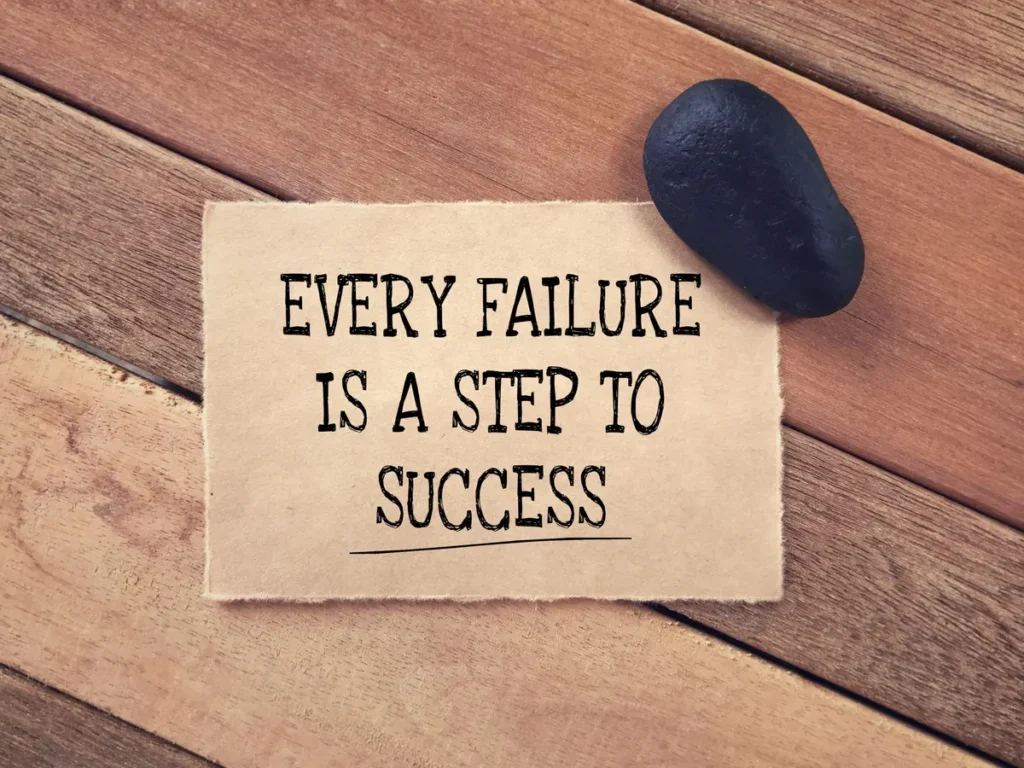Darren Campbell’s FBA Brand Builder program makes some bold promises—financial freedom, thriving Amazon businesses, and all the tools you need to succeed. But as the cracks start to show, one thing becomes clear: for many participants, the reality doesn’t live up to the hype.
One of the early course videos, Millionaire Mindset: Everything Needs You, features motivational speaker Armin Shafee diving into the power of belief and “rewiring mental blocks.” Sounds great in theory. But when participants are battling debt, unsold inventory, and rising advertising costs, these abstract ideas fall short of providing real solutions.
Let’s take a closer look at the video’s advice and where it misses the mark.
It might go down easier if you’re a little tipsy while reading the quotes below—it could take the sting out of that £6,500 you just dropped on advice like this.

Quote 1: “Erase the old code that’s running in your brain and rewrite it. Until you do that, success will feel impossible.”
Why It Falls Short:
Sure, this sounds inspiring. But if you’re drowning in debt or sitting on piles of unsold inventory, this advice feels...well, useless. Success on Amazon isn’t about “rewriting mental code”—it’s about real-world skills like market research, managing ad spend, and optimizing listings.
The Bigger Picture:
As we highlighted in Another £10K ‘Success’ Story?, many participants are stuck relying on Darren’s team to analyze their campaigns because they’re never taught how to do it themselves. Mindset alone won’t fix those gaps.

Quote 2: “Nobody else is responsible for your results but you. Everything you need is in your hands.”
Why It Falls Short:
Let’s be real—this sounds more like a way to deflect responsibility than offer support. Participants pay £6,500 expecting expert guidance, yet many report feeling lost and unsupported. If success is entirely on them, what are they paying for?
The Bigger Picture:
In The Human Cost of FBA Brand Builder Failures, participants shared how Darren’s vague “trust the process” advice did little to address their financial struggles. They felt abandoned and blamed for problems the program was supposed to help solve.

Quote 3: “The only thing that’s holding you back is the story you keep telling yourself about why you can’t succeed.”
Why It Falls Short:
This might work for someone doubting themselves, but it completely dismisses the real challenges sellers face—things like soaring PPC costs, unsold products, and oversaturated markets. These aren’t “stories”; they’re legitimate obstacles that need practical solutions.
The Bigger Picture:
In Generic Advice and Dismissive Responses, we found that participant concerns are often brushed off with generic motivational lines instead of actionable guidance. This creates more frustration than progress.

Quote 4: “You have to believe you deserve success before the universe will let you have it.”
Why It Falls Short:
This kind of pseudo-spiritual advice sounds nice but ignores the skills sellers need—like PPC management, keyword research, and product selection. Belief is great, but it won’t make ad campaigns profitable or unsold products move.
The Bigger Picture:
This ties into a broader theme we explored in The Psychology of Fear: belief is framed as the magical key to success, distracting participants from the fact that they aren’t being given the tools to succeed on their own.

Quote 5: “If you’re not willing to sacrifice everything for your goals, you don’t deserve to achieve them.”
Why It Falls Short:
This kind of advice is dangerous. Many participants have already sacrificed a lot—using savings, taking loans, or cutting personal expenses—to join the program. Encouraging more sacrifice only deepens their financial and emotional strain.
The Bigger Picture:
As covered in Teaching or Preaching?, Darren’s team often urges participants to “invest more,” leading to precarious financial situations for people already on the edge. This kind of rhetoric glorifies burnout and ignores the need for sustainable success.

Quote 6: “Emotion drives action. If you can control your emotions, you can control your life.”
Why It Falls Short:
Emotional resilience is important, sure. But this advice doesn’t address the operational or financial challenges participants are facing. For someone stressed about debt or failing sales, this feels dismissive rather than helpful.
The Bigger Picture:
As we revealed in Who’s Really Running Your Ads?, participants are often told to “stay positive” while grappling with vague advice, high-pressure upsells, and little actionable support.

Quote 7: “Your current life is a reflection of the choices you’ve made in the past. To change your life, you must change your decisions now.”
Why It Falls Short:
This advice puts the focus on personal responsibility, which isn’t necessarily bad—but it ignores a big issue. Many participants don’t have the knowledge or tools to make the “right” decisions in the first place. The FBA Brand Builder program doesn’t teach critical skills like ad optimization or inventory management, leaving participants reliant on Darren’s team while making financial choices that could lead to debt or failure.
The Bigger Picture:
This lack of preparation ties into what we covered in Who’s Really Running Your Ads?. Without proper PPC training, participants are left guessing about their ad performance, putting their businesses at risk.

Quote 8: “You’re either a victor or a victim. The choice is yours.”
Why It Falls Short:
This oversimplified mindset ignores the very real struggles participants face—like financial challenges, market saturation, and the lack of practical guidance in the program. Framing failure as a personal choice conveniently shifts blame away from the program’s shortcomings and onto the participants themselves.
The Bigger Picture:
As we explored in The Psychology of Fear, this kind of rhetoric subtly pressures participants to see hesitation or failure as personal flaws. This discourages them from critically evaluating whether the program itself is falling short.

Quote 9: “If you focus on what’s going wrong, that’s all you’ll see. Shift your focus to what’s going right, and more good things will happen.”
Why It Falls Short:
While staying positive has its benefits, this advice can feel dismissive to participants dealing with real problems—like unsold inventory, skyrocketing ad costs, or poor sales. Ignoring those issues won’t make them go away. Success requires confronting challenges and finding practical solutions, not just focusing on what’s “going right.”
The Bigger Picture:
In Generic Advice and Dismissive Responses, we saw how participants bringing up valid concerns in the program’s community are often met with vague positivity instead of real, actionable advice.

Quote 10: “It’s not about what you don’t know—it’s about what you don’t do.”
Why It Falls Short:
This line implies that participants are struggling because they’re not taking action, rather than acknowledging that many simply haven’t been given the tools or training to succeed. It feels like an easy way to dismiss the program’s responsibility to properly equip its participants.
The Bigger Picture:
As we discussed in Teaching or Preaching?, participants are often pushed into high-risk moves—like taking out loans—without being taught how to manage those risks. The result? Many find themselves in financially precarious situations.

Quote 11: “Successful people see opportunity where others see obstacles.”
Why It Falls Short:
This advice encourages participants to “think positive” instead of addressing real issues head-on. While optimism is valuable, it won’t solve problems like underperforming ads, a poor product-market fit, or unsustainable costs. Sometimes, the obstacles aren’t just in your head—they’re in the system you’re working within.
The Bigger Picture:
In The Human Cost of FBA Brand Builder Failures, we highlighted how Darren’s program tends to dismiss participants’ concerns. Instead of offering solutions, the program normalizes failure as part of the process, often at a steep financial and emotional cost for participants.

The Mindset Smokescreen
The “Millionaire Mindset” video is just one example of a bigger issue with Darren Campbell’s FBA Brand Builder program: a heavy focus on mindset as the fix-all solution. While mindset is important, it’s no replacement for real training and technical skills.
Here’s what participants often report:
- Dependence on Darren’s Team: Critical skills like PPC management are withheld, leaving participants reliant on costly upsells.
- Financial Strain: Many find themselves in serious debt, unable to break even or cover basic expenses.
- Dismissed Concerns: Instead of real help, participants are met with vague advice that shifts blame onto them.
The Illusion of Empowerment
The “Millionaire Mindset” video peddles belief and sacrifice as if they’re magical keys to success, but let’s call it what it really is: ego-driven fluff. This kind of aimless, vanity advice does absolutely nothing for people who are drowning in debt, struggling with poorly trained support staff, and grappling with inadequate training materials. Darren’s favorite fallback—“trust the process”—rings hollow when participants are already locked in after shelling out £6,500, not to mention the additional fees they weren’t warned about during the initial consultation call.
This isn’t empowerment. It’s exploitation disguised as encouragement.
If you’re considering joining, stop and ask yourself:
- Are you paying for real, actionable skills or just empty motivational speeches?
- Will you come out of this program equipped to run a business independently, or stuck paying Darren’s team to fix problems they should’ve taught you to solve?
- Is this really a program designed to help you, or a system that profits off your desperation and keeps you tied to ongoing costs?
Beware of any program that tries to gloss over legitimate struggles with garbage advice like this. It’s not just misleading—it’s dangerous. Don’t fall for it.
Have a story to share? Submit your experience anonymously through our Share Your Story form. Together, we can uncover the truth and hold programs like this accountable.

